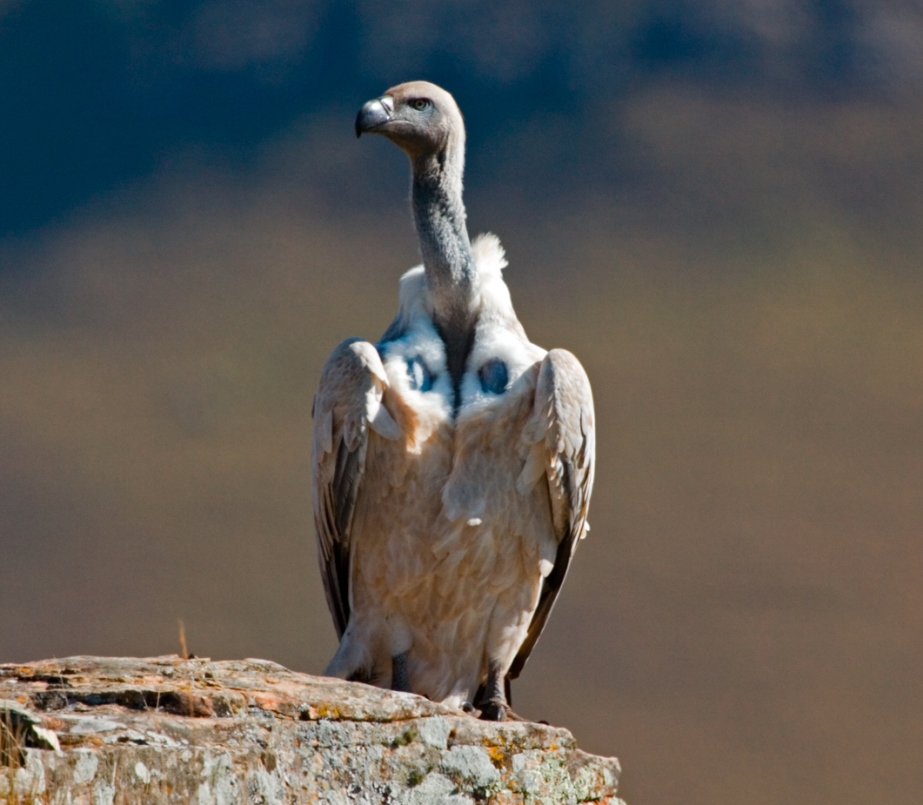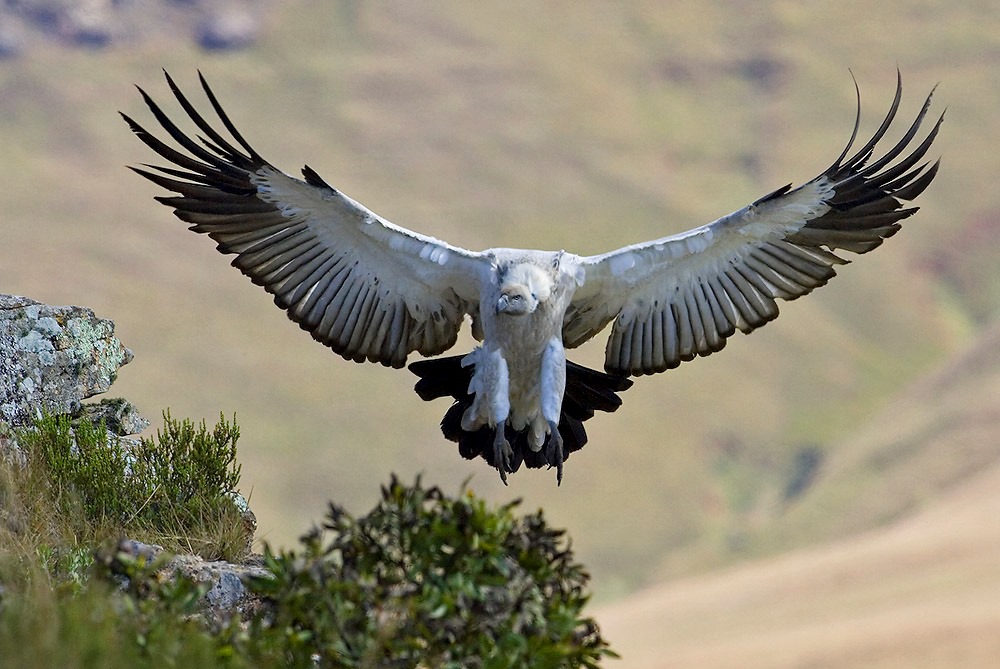Cape Vulture Restaurant
- Home
- Cape Vulture Restaurant
Cape Vulture Restaurant
Project Objectives and Expected Results
All the problems facing the vultures today all culminate in their fast population decline. The vultures are therefore endangered species though different species are at different IUCN Red List categories. In 2017, the Kalahari Research and Conservation conducted a study at Moremi Gorge where there are 2 breeding sites for Cape Vultures. In their study, they found out that the fledgling nesting success was at 43.5% and that dead chicks discovered at the bottom of the cliff had deformed wings and legs. This is clear evidence that concerted efforts need to be deployed across the country to save the endangered species. Moremi Gorge breeding site is adjacent to the Goo-Tau breeding site; Manonyeng cliff. One is inclined to believe that the Cape Colony is faced with the same environmental problems as the colony is not significantly increasing. The rapid lack of carnivorous activity leaves vultures with both shortage of carrion and bones thus starving to death or lacking strong bone development; especially the chicks. This is the area we wish to improve by providing the Cape Vultures with defragmented bones.
The objectives are;
- toprovide the Capes with bones
- Toincrease the Cape Vulture population on the breeding site
- Topromote the tourism value of Cape Vultures in order to improve rural livelihoods
- Toturn the Manonyeng breeding site into a Safe Zone for
Botswana as a country, besides its Vision 2036 which advocates for Sustainable Development, has called for action to protect vulture species which continue to decline in numbers. Birdlife Botswana which is mainly mandated with bird species conservation has also reiterated recently the need to conserve vultures is particular. It also goes without saying that the Kalahari Research and Conservation through Raptors Botswana has been heavily involved in our vulture species conservation. To a large extent, there is need for BLDCT to support and get involved as well as involving the local communities on these crucial conservation efforts as the Cape Vultures are continuously in danger of being extinct. By far and large, this project will shine and expeditiously support the GEF Small Grants Program geared towards conservation of threatened ecosystems and species.
We expect to see the following results during and after the project;
- Strong shelled eggs and Increased fledgling
- success rate of the Cape Vultures
- Increased Cape Vulture population
- Locals employed at the project
- Sustained project attracting tourism related
- activities that are paid for by tourists
- Manonyeng breeding site declared a Safe Zone for Vultures
Annually, beginning the 2nd week of March through to end of June, we shall provide the Cape Vultures with crushed bones so that they lay eggs with strong shells. The crushing and supply of bones shall be done by the members of the local community wildlife club guides once every week throughout the proposed time frame which shall be the 1st feeding program. In March (from the 2nd week) through to End of June, the vultures shall be provided with crushed bones of 20kg weekly. That is to say, between that period they shall be provided 15 times by 20kg of crushed bones at their vulture restaurant. The 2nd feeding regime shall start annually as well in the 1st of August through to the end of November. This feeding program is meant to provide vultures with their own supplement as adults, and would carry surplus for their young ones. Therefore, instead of giving them 1 by 20kg weekly rations, we shall add an extra 10kg to make it 30kg per week since they eat and carry some for their chicks. So, every week from 1st of August – end of November, they will be given a weekly 30kg of crushed bones at the facility. (16 servings)
The Cape Vultures shall be provided with a water hole where they shall drink and swim every time they wish when in the facility. The guides are already recruited but to be capacitated in August 2023. Organizations such as Birdlife Botswana and Raptors Botswana who are already our partners shall be of major importance in that regard. The training shall among others capacitate guides to be able to do scheduled public educational campaigns at the Goo-Tau and neighboring villages, (Manaledi and Goo-Sekgweng) schools and at the vulture restaurant. The guided walks to Manonyeng will start as soon as the guides are capacitated. This is a very sensitive exercise that needs careful management and caution as we do not want to disturb the Capes at their breeding site, so the guides will be equipped with skill and awareness to do it exceptionally well. The tourists and all other clients shall pay a nominal fee for these guided walks to make savings for bones and other facility operations beyond the 2 years of this proposed funded project. Without fail, the vulnerable and orphaned children, disabled, school children, farmers shall be scheduled twice annually to view and learn about the vultures and their importance in the ecosystem. This shall be free of charge for these groups.
Cape Vulture Restaurant
PROJECT SUMMARY
In Botswana, vultures are faced with several threats such as poisoning, habitat loss, electrocution, and collision with pylons/structures amongst others. Poisoning, both targeted and non-targeted poses the biggest threat to the survival of our vultures. In recent years a continued spate of poisoning incidents has seriously affected local populations of already threatened vultures with sentinel killing and human wildlife conflict motivated poisoning incidents rife across the country. As at 2022, Birdlife Botswana estimated that at least 2000 species of vultures died due to poisoning in the last decade. The estimation was based on reported cases only, and as such the numbers may be worse. Poisoning has been a barrier to vulture breeding and or population increase, and if this is partnered with other impediments such as their slow breeding, electrocution, lack of food, predators etc. then one would realize how important it is to protect vulture colonies. Lately we have heard of vultures in the Chobe Region which were found dead with missing body parts suspected to have been cut off with a sharp object. This is a developing trend new in Botswana though some may not have been discovered and reported. In this regard, it is crucial that we make a deliberate effort to promote community involvement to promote awareness, skill, and willingness to protect these birds. Such deliberate campaign shall ultimately increase community ownership and will to conserve the vultures as soon as individuals attach sustainable economic value to these magnificent birds. In the long run, this will reduce mass poisoning of these birds, habitat destruction and home invasions. Goo-Tau village has a colony of Cape Vultures resident at a cliff locally known as Manonyeng (a place where the vultures live) The founder of BLDCT has been awarded a 1-hectare plot at least 3km away from the vulture cliff. This plot is ear marked for this project, as it is also at least 3km away from the village. Previous research findings have established that the vultures (including chicks) lack calcium which is very crucial for strong bone development. Therefore, the adult birds may lay eggs which do not have strong shells and or the chicks may crush down the cliff and die as they try to take their first flight. We wish to approach this disturbing problem by setting up a vulture restaurant where we shall provide the birds with crushed bones from the 2nd week of March when their breeding season starts through to June so that their egg shells are stronger. Then we shall provide them with the 2nd feeding program after their eggs are hatched, from August through to November so that they feed their chicks. We would also build a bird-viewing hide which shall be used by researchers, farmers, youths and community at large for educational tours. The vulture restaurant shall be a wide open area to allow birds to land and take off but fenced. The bird-viewing hide shall be within the fenced enclosure as well. Therefore, the community nearby and all other stakeholders around the country shall be educated about the crucial role that the vultures play in the ecosystem. The bird-viewing hide shall therefore operate as an education center where young children, farmers, out-of-school youth, orphaned and vulnerable children and the disabled shall access to be able to receive ecological training especially when the Cape Vultures are not feeding. This approach shall be relevant to addressing the Operational Phase (OP) 7 strategic initiative of Community-based conservation of threatened ecosystem and species in that the project shall protect birds and their habitat.
Below is the newsletter which proves beyond doubt that Cape Vultures need our deliberate intervention to safeguard their continued existence. The ongoing Goo-Moremi Gorge bone supplement is delivering good results, though a lot still needs to be done. But the Cape Vulture colony there is flourishing and the community is making a living out of them. The economic value is clear to members of the community as they now own the project which was initially started by Kalahari Research and Conservation which we are going to work with right away when we get the funding.



